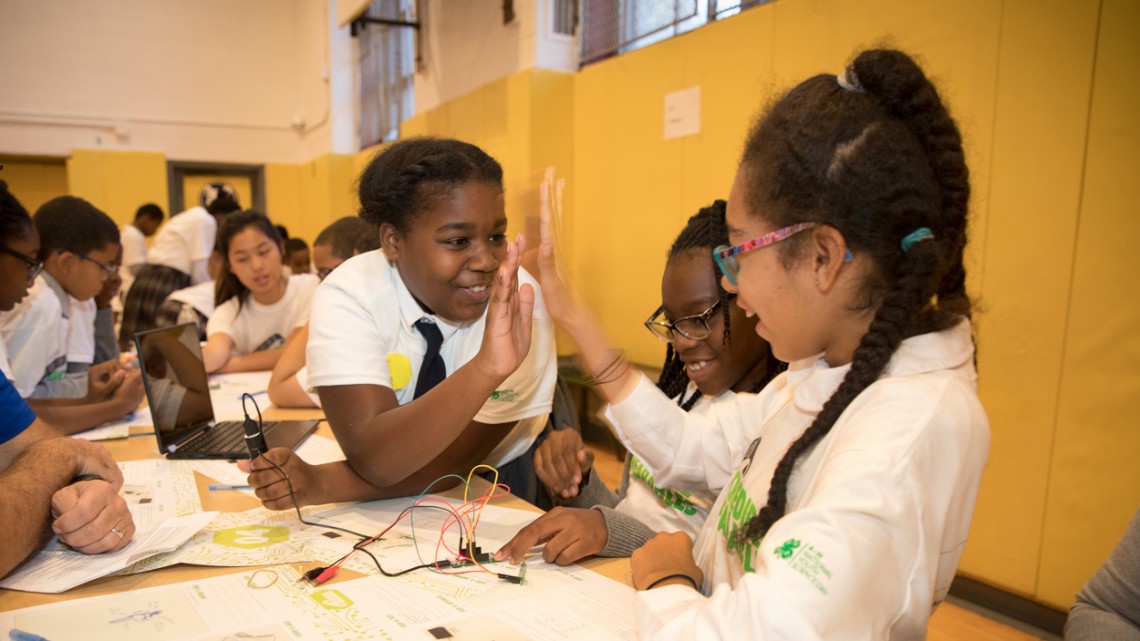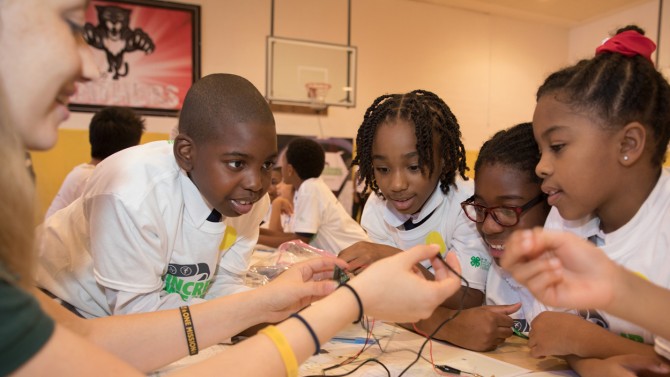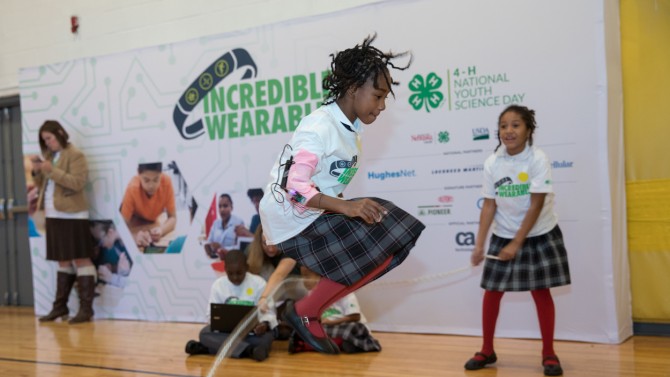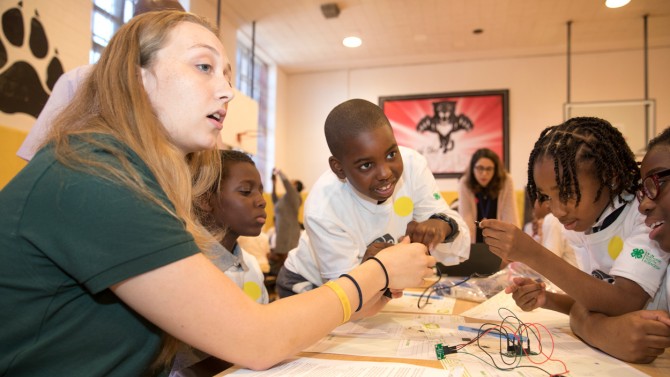
Students celebrate creating their own fitness armbands.
Organized chaos spells creativity at Brooklyn school science event
By Jon Craig
A Brooklyn elementary school was transformed into a high-tech laboratory during a Cornell-led science discovery day Oct. 4.
About 300 schoolchildren jammed all corners of Public School 21 as part of the 10th annual 4-H National Youth Science Day that reached an estimated 100,000 schoolchildren in 50 states. Last fall, Cornell led the national “drone discovery” theme.
This year’s interactive learning challenge, “Incredible Wearables,” was developed by the University of Nebraska-Lincoln. Youths engineered and built electronic armbands that measured their fitness while exercising. The PS 21 gymnasium was filled with “wired-up” students jumping rope, spinning hula hoops or running in place. Fellow youth scientists then monitored and measured heartbeats and number of steps or jumps taken.
In another room sponsored by faculty, staff and volunteers from Cornell University Cooperative Extension-New York City (CUCE-NYC) and National 4-H Council, the schoolchildren:
- explored New York state’s parks using a giant geological map, led by Susan Hoskins, senior extension associate at Cornell’s Institute for Resource Information Sciences;
- learned about hydroponics, or growing plants without soil, which wowed most youngsters, led by Philson A.A. Warner, extension associate and founding director of the CUCE-NYC Hydroponics, Aquaculture, Aquaponics Learning Lab;
- learned about energy by pedaling a bicycle that produced electricity to power light bulbs and a fan;
- created bird feeders from pine cones and planted fall bulbs to help pollinators; and
- learned about sugar levels in juices, beverages and fatty foods.
The goal was to inspire youths to gain interest in science, technology, engineering and mathematics (STEM) and pursue college and careers in those fields.
Another interactive exhibit, sponsored by Google, allowed students to wear virtual reality goggles that exposed them to moving undersea images, a dairy farm in Minnesota and other science-based scenes.
Lucinda Randolph-Benjamin, CUCE-NYC extension associate for family and 4-H youth development, said this year’s combination of high-tech fitness tests in one part of PS 21 as well as interactive exhibits in another part transformed the flagship Brooklyn school into a “crazy but incredible learning environment.”
“There’s a lot more to keep track of this year,” Randolph-Benjamin exclaimed as she herded gaggles of elementary pupils.
Last fall, “drone discovery” and the accompanying engineering design challenges were developed by staff and faculty members in Cornell Cooperative Extension and the College of Human Ecology. In addition to solving real-world problems, students were taught about safety and regulations, remote sensing and flight control – a project that continues to gain national traction.
Jon Craig '80 is a writer based in New York City.
Media Contact
Get Cornell news delivered right to your inbox.
Subscribe

